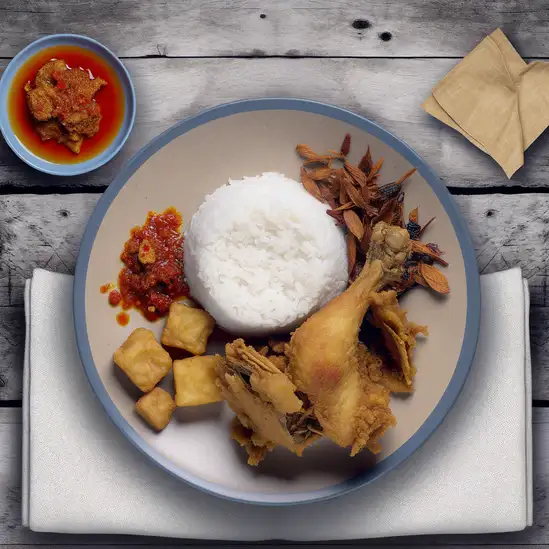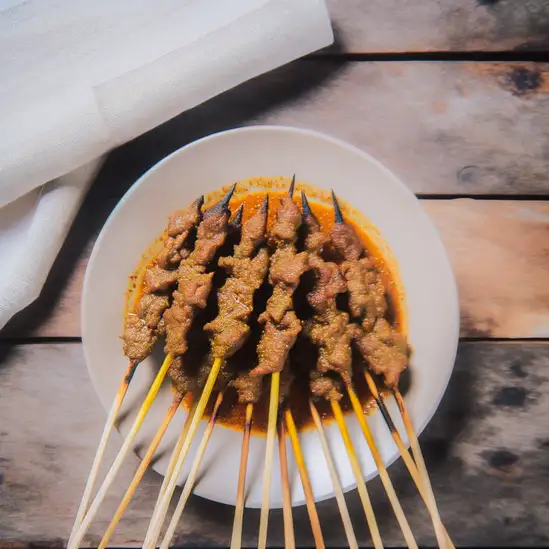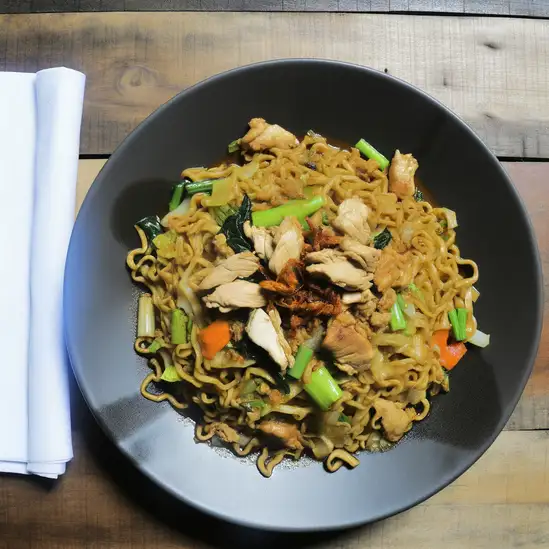



If you ever find yourself wandering through Java,Sleman is one of those places that quietly steals your heart without shouting for attention. There’s this gentle rhythm to the town—part bustling market chatter,part serene rice fields swaying in the breeze—that makes you feel instantly at ease. Imagine waking up to the scent of fresh spices mingling with the earthy aroma of volcanic soil,all under the watchful gaze of Mount Merapi,which looms majestically nearby,reminding you of nature’s power and beauty. Walking through Sleman,you’ll hear the lively calls of street vendors selling traditional snacks like gudeg,a sweet jackfruit stew that melts in your mouth,and the clatter of motorbikes weaving through narrow lanes lined with vibrant batik shops and humble warungs. The locals greet you with warm smiles,eager to share stories about their culture,from ancient temples like Prambanan to the vibrant arts scene that pulses quietly beneath the surface. What makes Sleman truly special is how it balances the old and the new. You can explore centuries-old Hindu temples in the morning,then spend your afternoon sipping kopi tubruk at a cozy café,watching the world go by. It’s a place where tradition isn’t just preserved—it’s lived,breathed,and savored in every corner. If you want a taste of authentic Javanese life,with a backdrop of stunning landscapes and heartfelt hospitality,Sleman should definitely be on your list.
The information on this page is currently being reviewed by Tripkliq and should be used as a guide only
Eng word: Hello
Eng pronunciation: Ha-lo
Local language: Halo
Eng word: Goodbye
Eng pronunciation: Soo-geng tin-dak
Local language: Sugeng tindak
Eng word: Thank you
Eng pronunciation: Ma-toor noo-woon
Local language: Matur nuwun
Eng word: How much
Eng pronunciation: Pin-ten
Local language: Pinten
Eng word: Toilet
Eng pronunciation: Ka-mar man-dee
Local language: Kamar mandi
Eng word: Help me
Eng pronunciation: Too-loong a-koo
Local language: Tulung aku
Eng word: Yes
Eng pronunciation: Ing-gih
Local language: Inggih
Eng word: No
Eng pronunciation: O-ra
Local language: Ora
Eng word: Excuse me
Eng pronunciation: Noo-woon se-woo
Local language: Nuwun sewu
Sleman is home to several ancient Hindu temples, including the famous Prambanan Temple, which dates back to the 9th century. This UNESCO World Heritage Site is a must-visit for its stunning architecture and historical significance.
Mount Merapi, one of Indonesia's most active volcanoes, is located in Sleman. The volcano has shaped the region's landscape and culture, and visitors can explore its slopes and learn about its history at the Merapi Volcano Museum.
The Ratu Boko Palace complex, also known as Kraton Ratu Boko, is an archaeological site in Sleman that dates back to the 8th century. It offers a glimpse into the ancient Mataram Kingdom and provides stunning views of the surrounding area.
Sleman is rich in Javanese culture and traditions. Visitors can experience traditional dance performances, gamelan music, and local crafts, providing a deep insight into the region's cultural heritage.
Sleman is known for its fertile land and agricultural activities. The region is famous for its salak (snake fruit) plantations, and visitors can tour these plantations to learn about local farming practices and taste fresh produce.
Sleman boasts several museums that showcase its rich history and culture. The Ullen Sentalu Museum, for example, offers an in-depth look at Javanese art, culture, and history, making it a great educational stop for tourists.
Sleman is home to several traditional Javanese villages, such as Desa Wisata Kembang Arum. These villages offer tourists a chance to experience rural life, traditional crafts, and local cuisine.
Sleman is an educational hub, home to several prestigious universities, including Universitas Gadjah Mada. The presence of these institutions has fostered a vibrant academic and cultural environment in the city.
The traditional markets in Sleman, such as Pasar Beringharjo, have been operating for centuries. These markets offer a unique shopping experience where visitors can find traditional Javanese goods, textiles, and local delicacies.
In Sleman, the most common Power Adaptor is Type C, Type F.



A traditional Javanese dish made from young jackfruit cooked with coconut milk and spices, often served with rice, chicken, and boiled eggs.

Smashed fried chicken served with sambal (spicy chili paste), rice, and fried tofu or tempeh, known for its bold flavors.

A unique type of satay from Yogyakarta, made with mutton skewered on a stick and grilled over charcoal, typically served with a spicy soy sauce.

Javanese-style noodles stir-fried with vegetables, chicken, and spices, often served with a side of broth.

A small portion of rice served with various side dishes, wrapped in banana leaves, often found in local street food stalls.
Bali feels like stepping into a vibrant dream where every corner pulses with life and warmth. From the moment you arrive,there’s this unmistakable energy—part spiritual,part playful—that wraps around you like a soft,tropical breeze. Imagine waking up to the gentle rustle of palm leaves and the distant sound of waves crashing against volcanic black sand beaches. The air carries a mix of frangipani blossoms and salty sea spray,instantly grounding you in the island’s natural beauty.
What really makes Bali special is its rich culture woven into everyday life. You’ll see locals in colorful sarongs offering flowers at temple steps,hear the rhythmic beat of gamelan music drifting through the air,and catch glimpses of intricate wood carvings and vibrant paintings in small artisan shops. The island’s spirituality isn’t just something you observe—it’s something you feel,a quiet presence that invites you to slow down and connect.
And then there’s the food—oh,the food! Freshly grilled satay,fragrant nasi campur bursting with spices,and tropical fruits so sweet they almost taste like candy. Whether you’re dining in a bustling market or a cliffside café overlooking the ocean,every bite feels like a celebration of Bali’s rich flavors and traditions. Honestly,Bali isn’t just a place you visit; it’s a place that stays with you,long after you’ve left.
If you ever find yourself wandering through Yogyakarta,you’ll immediately notice a rhythm that feels both lively and laid-back,like the city is humming a gentle,inviting tune. It’s a place where ancient traditions and youthful energy collide in the most beautiful way. As you stroll down Malioboro Street,the air is thick with the scent of sizzling satay and sweet jasmine from roadside stalls,while the chatter of locals bargaining and the distant beat of gamelan music create a vibrant soundtrack. The city’s heart beats in its art and culture—every corner seems to hold a story,from the intricate batik workshops to the majestic temples of Borobudur and Prambanan just a short ride away.
Yogyakarta’s charm lies in its warmth and authenticity. The people here are incredibly welcoming,often eager to share their crafts,stories,or a cup of strong Javanese coffee. You can feel the city’s deep respect for its heritage,yet it’s also a hub for creative souls,with street art splashed across walls and indie cafes buzzing with young artists and thinkers. The sunsets here are something else—casting a golden glow over the terracotta rooftops and ancient palaces,inviting you to pause and soak it all in.
Whether you’re wandering through the Sultan’s Palace,tasting gudeg (a sweet jackfruit stew) at a local warung,or simply watching the world go by from a cozy café,Yogyakarta wraps you in a sense of belonging. It’s a city that doesn’t just ask you to visit but to stay a little longer,to explore deeper,and to fall in love with its soul.
If you find yourself wandering through Kota Administrasi Jakarta Pusat,you’ll immediately notice the pulse of a city that’s both historic and buzzing with modern energy. It’s a place where colonial-era buildings stand shoulder to shoulder with sleek skyscrapers,creating a fascinating blend of old and new. Walking down the streets,you can almost hear the echoes of history mingling with the chatter of office workers and street vendors. The air carries a mix of aromas—from the rich,spicy scent of street food stalls grilling satay to the faint,comforting smell of freshly brewed kopi from tiny warungs tucked in corners.
What really makes Jakarta Pusat special is its vibrant character. It’s the heart of the city’s administrative and cultural life,so you’ll find a lively mix of people—government officials,artists,students,and families—all weaving their stories into the urban fabric. The bustling markets,like Pasar Baru,invite you to haggle over colorful textiles and local snacks,while nearby museums and galleries offer a quiet retreat into Indonesia’s rich heritage.
There’s a rhythm here that’s both fast-paced and inviting. Whether you’re sipping a sweet es cendol under the shade of a tree in Merdeka Square or catching the golden light reflecting off the National Monument at dusk,Jakarta Pusat feels alive in a way that’s deeply human and endlessly fascinating. It’s a city that invites you to slow down,look around,and soak in the layers of life unfolding all at once.
Surabaya pulses with an energy that’s both vibrant and welcoming,a city where history and modern life dance side by side. As you wander through its bustling streets,you’ll catch the scent of sizzling satay mingling with the salty breeze from the nearby harbor. The city hums with the chatter of locals bargaining in lively markets,the clatter of motorbikes weaving through traffic,and the distant call of street vendors selling fresh tropical fruits. It’s a place where every corner tells a story—from colonial-era buildings standing proudly alongside sleek skyscrapers to colorful murals that splash life onto old walls.
What really makes Surabaya special is its character:tough yet warm,a city that’s seen its share of history but never lost its heart. The people here are fiercely proud and incredibly friendly,always ready to share a smile or a recommendation for the best local warung. Dive into the food scene and you’ll find yourself savoring rich,spicy flavors—like the famous rawon,a dark beef soup that’s both comforting and bold,or the sweet,sticky lontong balap that fills the air with fragrant spices.
Evenings in Surabaya have their own magic. The city lights flicker on,and the streets fill with the sounds of gamelan music drifting from cultural performances or the laughter spilling out of cozy cafes. Whether you’re exploring the historic old town or simply sipping kopi on a street corner,Surabaya invites you to slow down,soak in its layers,and feel the heartbeat of a city that’s alive in every sense.
If you ever find yourself craving a place where the ocean breeze carries the scent of sizzling street food and the hum of lively markets fills the air,Makassar should be at the top of your list. This city pulses with a laid-back energy that feels both vibrant and welcoming,like a friend inviting you to slow down and savor the moment. Walking along the waterfront,you’ll catch glimpses of traditional wooden phinisi boats bobbing gently,their sails catching the golden light of sunset,while fishermen call out to one another in a melodic rhythm that feels timeless.
Makassar’s streets are a feast for the senses. The aroma of grilled seafood—freshly caught and seasoned with local spices—wafts from warungs lining the alleys,tempting you to try coto Makassar,a rich,aromatic beef soup that locals swear by. The city’s mix of Bugis and Makassarese cultures shines through in its colorful markets,where vibrant textiles,handcrafted jewelry,and lively banter create a tapestry of daily life that’s both authentic and inviting.
What really makes Makassar stand out is its blend of old and new. You can explore centuries-old forts and mosques,then hop over to a bustling café where young creatives gather,blending tradition with modern flair. It’s a place where every corner tells a story,and every meal feels like a celebration. Trust me,Makassar isn’t just a stopover—it’s a place that stays with you long after you’ve left.
Imagine stepping into a place where the ocean breeze carries the scent of salt and frangipani,and the rhythm of traditional gamelan music hums softly in the background. That’s Lombok for you—a vibrant island that feels both alive and laid-back at the same time. Unlike its flashier neighbor Bali,Lombok has this raw,untouched charm that invites you to slow down and really soak in the moment. The beaches here aren’t just pretty; they’re vast stretches of powdery white sand meeting turquoise waves that seem to whisper stories of ancient fishermen and island life.
Walking through the local markets,you’ll hear the lively chatter of vendors selling fresh spices,tropical fruits,and handwoven textiles. The air is thick with the aroma of grilled satay and sweet coconut,tempting you to try every bite. The Sasak people,with their warm smiles and rich traditions,add a deep cultural layer to the island’s character. You might catch a glimpse of their intricate weaving or hear tales of their unique ceremonies,which feel like a bridge between past and present.
What really stays with you about Lombok is its balance—between adventure and tranquility,nature and culture. Whether you’re hiking up Mount Rinjani’s misty slopes,diving into vibrant coral reefs,or simply sipping a fresh coconut by a quiet beach,there’s a genuine sense of connection here. It’s a place that doesn’t just fill your camera roll but leaves a quiet imprint on your heart.
Money changers offer attractive exchange rates but shortchange tourists or use sleight-of-hand tricks during the transaction.
Scammers approach tourists claiming to collect donations for local schools, temples, or charities, but the money is pocketed instead.
Unlicensed individuals pose as tour guides and charge tourists for inaccurate or incomplete information about local attractions.
Tourists are charged for pre-existing damage to rented motorbikes, or the rental company claims the bike was 'stolen' to demand compensation.
Vendors in tourist-heavy areas inflate prices significantly for souvenirs, especially if they sense the buyer is unfamiliar with local pricing.
Some food vendors charge tourists significantly higher prices than locals for the same dishes, especially in busy areas.
Drivers refuse to use meters and charge exorbitant flat rates, especially for trips to and from the airport or popular tourist spots.
Tourists are charged inflated prices for entrance tickets to popular attractions, often by unofficial sellers near the site.
Indonesia has very strict laws regarding drugs. The possession, use, or trafficking of illegal drugs can result in severe penalties, including long prison sentences and even the death penalty. Tourists should avoid any involvement with illegal drugs and be cautious about the legal status of any substances they may carry.
In Sleman, Indonesia, smoking is generally allowed in designated smoking areas. However, smoking is prohibited in public places such as schools, hospitals, public transportation, and government buildings. Tourists should look for designated smoking areas and be mindful of local regulations to avoid fines.
Vaping is subject to similar regulations as smoking in Sleman. It is prohibited in public places where smoking is banned. Tourists should use vaping devices only in designated areas and be aware that some establishments may have their own specific rules regarding vaping.
What are other people saying about Sleman?
Recent Social posts about Sleman
There is nothing to show you for now.